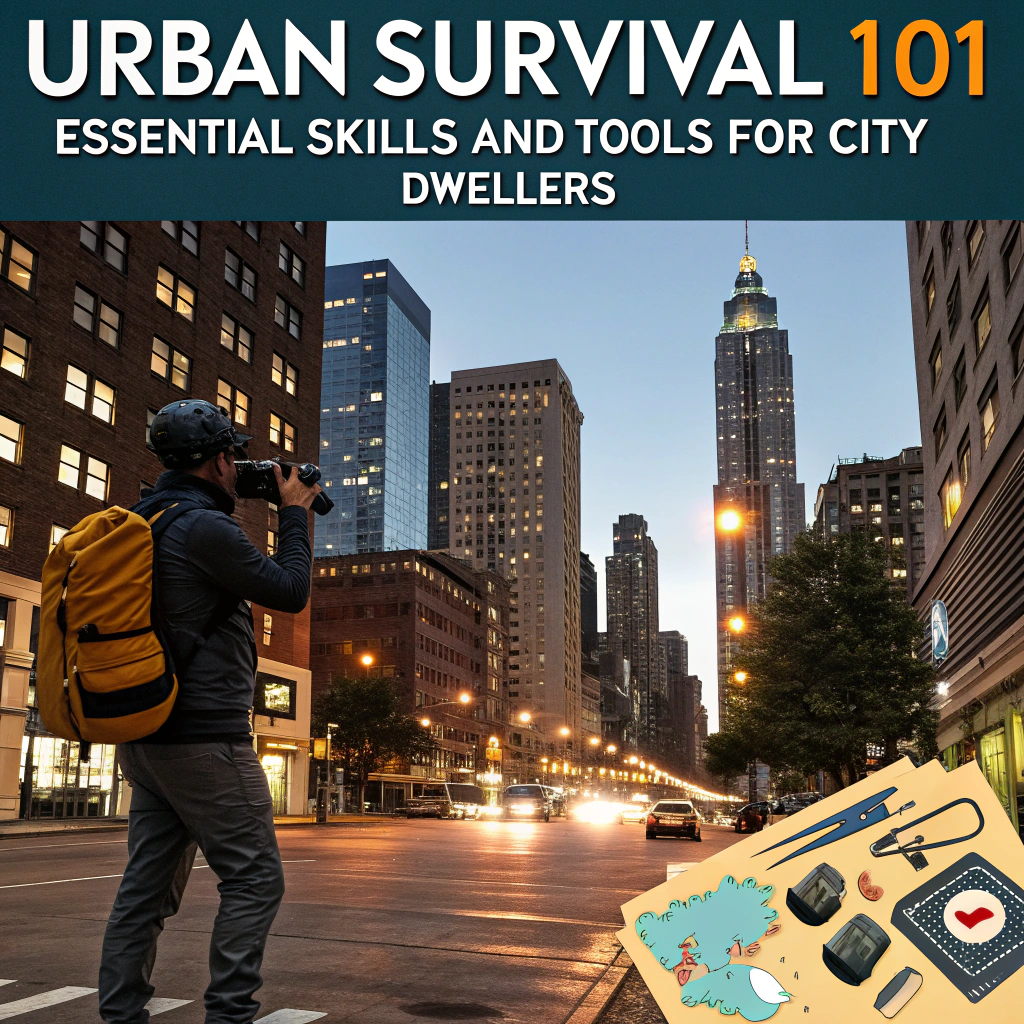In an increasingly unpredictable world, urban survival skills have become essential for city dwellers. Whether it’s a natural disaster, a sudden economic downturn, or even a personal emergency, knowing how to navigate urban challenges can make a significant difference in your safety and well-being. This article will explore the essential skills and tools every city dweller should have in their survival toolkit, ensuring you are prepared for whatever life throws your way.
Why This Topic Is Worth Reading

Urban environments present unique challenges that differ from rural settings. With dense populations, limited resources, and potential for civil unrest, understanding how to survive in a city is crucial. This article will equip you with practical skills and knowledge that can help you thrive in any situation.
Moreover, urban survival skills are not just about preparing for disasters; they also enhance your everyday life. Skills like self-defense, resourcefulness, and situational awareness can improve your confidence and ability to navigate the complexities of city living.
By learning these essential skills, you can foster a sense of community and resilience, empowering not just yourself but also those around you. In a world where uncertainty is the only certainty, being prepared is a valuable asset.
Key Highlights or Must-Know Points
- Understanding basic self-defense techniques.
- Building a personal emergency kit tailored for urban environments.
- Developing situational awareness to identify potential threats.
- Learning how to find and purify water in an urban setting.
Essential Urban Survival Skills
- Self-Defense Techniques
Knowing how to protect yourself is paramount in an urban environment. Basic self-defense techniques can empower you to handle confrontations effectively. Consider taking a self-defense class that focuses on practical skills, such as escaping holds or defending against common attacks.
- Emergency Kit Essentials
An emergency kit is your lifeline during a crisis. Your kit should include water, non-perishable food, a flashlight, a first-aid kit, and a multi-tool. Customize your kit based on your specific needs and the urban environment you live in. For instance, if you live in an area prone to earthquakes, include items like a whistle and a dust mask.
- Situational Awareness
Being aware of your surroundings can help you avoid dangerous situations. Practice scanning your environment regularly, noting exits, potential hazards, and the behavior of those around you. This skill can be honed through mindfulness exercises and by staying engaged with your surroundings.
- Water Sourcing and Purification
Access to clean water is critical during emergencies. Learn how to locate water sources in your city, such as public fountains or natural bodies of water. Additionally, familiarize yourself with purification methods, such as boiling or using water purification tablets, to ensure the water is safe to drink.
Extra Tips, Notes, or Warnings
- Stay Informed
Keep abreast of local news and emergency alerts. Download apps that provide real-time updates on weather, traffic, and safety alerts to stay informed about potential threats.
- Network with Neighbors
Building relationships with your neighbors can create a support system during emergencies. Share resources and skills, and establish a communication plan to stay connected during crises.
- Practice Your Skills
Regularly practice your survival skills to ensure you are prepared when the time comes. Whether it’s a self-defense move or assembling your emergency kit, practice makes perfect.
Common Questions Answered
What should I include in my emergency kit? Your emergency kit should contain water, non-perishable food, a flashlight, batteries, a first-aid kit, a multi-tool, and any personal medications.
How can I improve my situational awareness? Practice being mindful of your surroundings by regularly scanning your environment and noting exits, potential hazards, and the behavior of those around you.
Is self-defense training necessary for everyone? While not everyone may feel the need for self-defense training, it can significantly boost your confidence and ability to handle confrontations effectively.
How can I purify water in an emergency? You can purify water by boiling it for at least one minute, using water purification tablets, or filtering it through a clean cloth followed by boiling.
Final Thoughts
Urban survival skills are not just about preparing for the worst; they are about enhancing your quality of life and ensuring you can navigate the complexities of city living with confidence. By equipping yourself with these essential skills and tools, you can face any challenge that comes your way. Remember, preparation is key, and the more you know, the better you can protect yourself and your loved ones.
Get Involved
We encourage you to take the first step towards urban survival preparedness today. Start by assessing your current skills and resources, and consider joining a local survival group or taking a class. Share your thoughts and experiences in the comments below, and feel free to ask any questions you may have. For more insightful content, check out my site at mindofgriff.com.
Leave a Reply